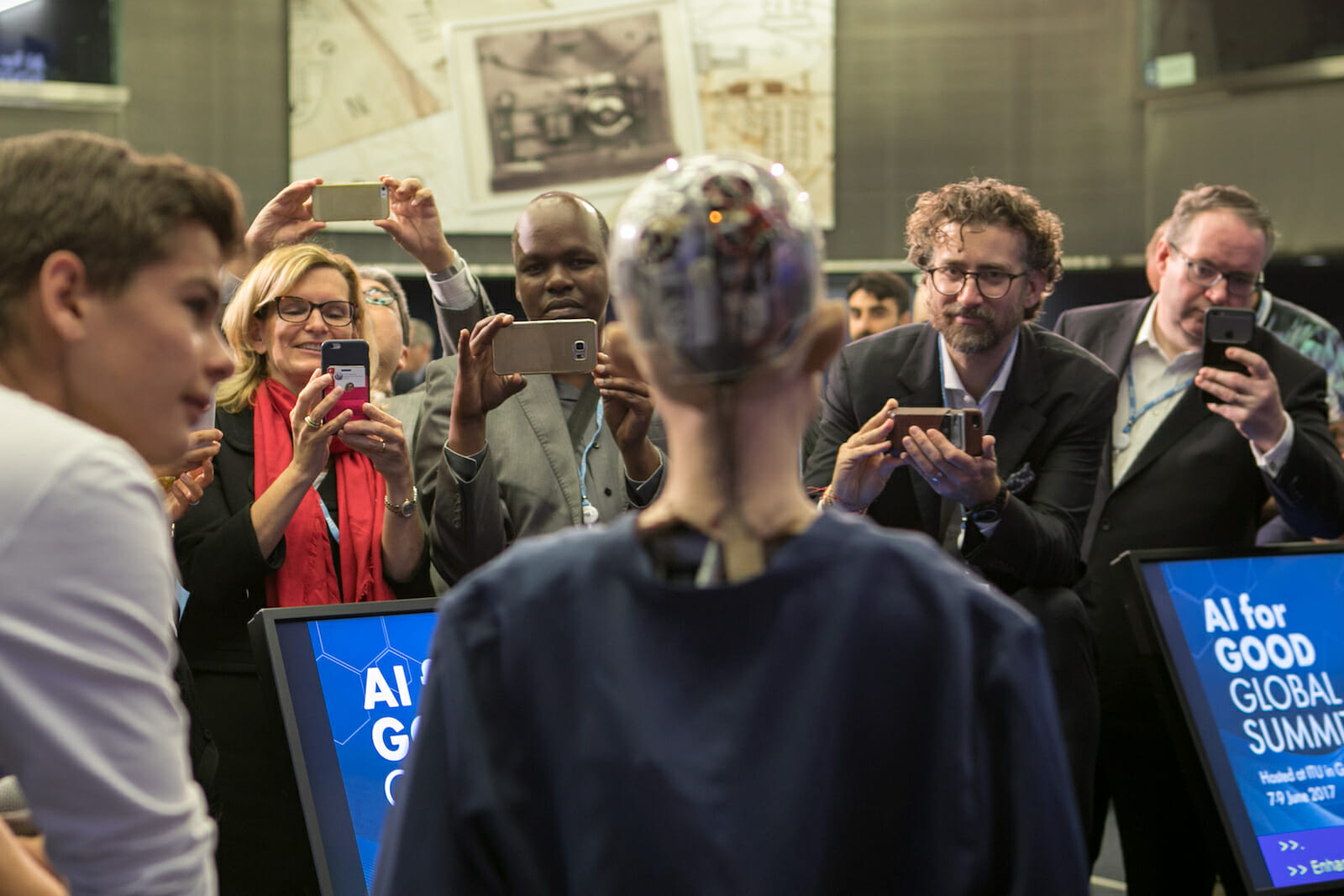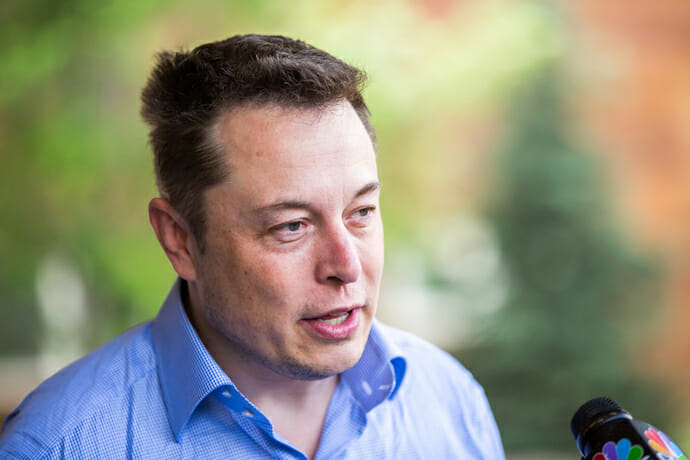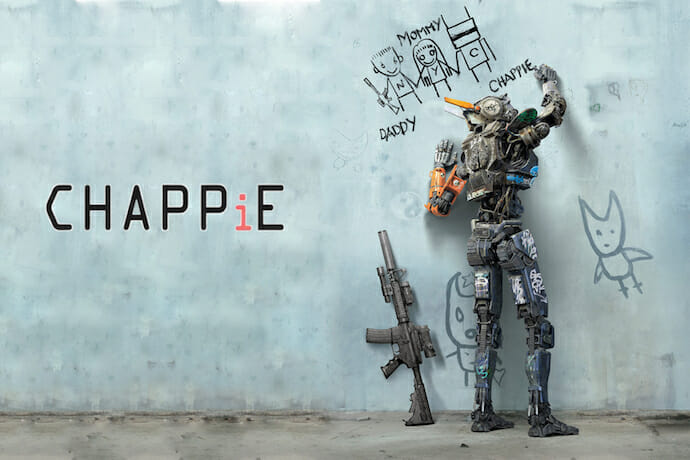
Tech
How We Should Respond to the AI Revolution
The technological progress that the modern civilization experiences today is nothing short of cataclysmic. It profoundly transforms our society—the way we live, produce, relate to each other, the way we educate our children, take care of our elderly and much, much more. There is hardly a sphere of our life that escapes the powerful impact of modern technological innovations.
Artificial intelligence (AI) is perhaps the most important area of innovation that drives technological progress in many other areas. Rapid advances in AI open wide horizons that offer many new possibilities for future growth and innovation.
Given the importance of AI in modern society, one can understand why discussions of AI occupy a very important place in our public discourse. Many industrial and business leaders, entrepreneurs, scientists, politicians, public figures, and common citizens are trying to come to grips with this dynamic development. Participants in these discussions strive to understand and explain to others the challenges the AI revolution brings and how we can adequately respond to these challenges.
There is no shortage of views and opinions on AI. Some see the AI revolution as a source of infinite benefits to our society. Others are more cautious in their assessments. For example, in the opinion of Elon Musk, a famous entrepreneur and venture capitalist, the AI revolution is a double-edged sword that may, on one hand, in many ways enrich humanity but, on the other hand, is fraught with instability and dangers. Despite their diversity, all views and opinions on AI agree that the AI revolution is a very significant development in the history of humanity on par with such broad civilizational shifts as the agricultural revolution that supplanted society of hunters and gatherers and the first industrial revolution that changed beyond recognition the agricultural society that preceded it. They predict that the AI revolution will have a particularly significant impact on the labor market and employment opportunities. Many current occupations will be affected: some will no longer employ as many people as they do now; others may disappear altogether. All participants in the discussions realize that our civilization must develop a response to the AI revolution.
Among the more recent contributions on the subject, the voice of Dr. Kai-Fu Lee, a venture capitalist and business leader from China, draws much attention. Dr. Lee has recently published a book entitled, AI Superpowers: China, Silicon Valley and the New World Order (Houghton Mifflin Harcourt). His articles on the subject have appeared in the Wall Street Journal, the New York Times, and other important newspapers and magazines. He has also been actively promoting his views in numerous appearances at prestigious conferences, meetings, and seminars sharing his ideas with many diverse audiences.
The response that Dr. Lee advocates is in a significant way different from what many mainstream business leaders and entrepreneurs—many of whom come from the Silicon Valley—support. Their solution to the dramatic impact predicted for the AI revolution, and particularly a drastic reduction of labor force, is to introduce what is called the Universal Basic Income (UBI) that would ensure a minimum standard of living to all members of society without exception. The UBI is essentially a payment to those who will find themselves no longer employable.
Dr. Lee’s approach is very different. He acknowledges that there are many tasks that AI machines perform much better than humans. Yet he argues that despite enormous advances in design of AI machines, there are some important areas that require qualities that machines simply do not have. Machines, for example, are not capable of experiencing emotions; they are simply incapable of developing a relationship that involves love and care. The emotional sphere is uniquely human and cannot be replicated by machines. Machines are completely unusable in roles that require a human touch.
The proposal advanced by Dr. Lee is in a nutshell this: We as a civilization should use the fact that AI is making advances and increasingly replaces humans in the productive sphere as an opportunity to rethink our priorities. Rather than continue concentrating on production, we should reconfigure our priorities and pay much more attention to human wellbeing. We should employ those who are displaced by machines from the productive sphere to provide more services to take care of our sick and disabled, more and better schools for our children, offer more assistance to our elderly—in a word, we should make our society more loving, caring, and nurturing.
Although Dr. Lee’s proposal is in a very positive way different from other proposals, it does not solve the problem posed by the AI revolution. Despite the fact that his proposed use of excess labor is more meaningful than simply paying people for doing nothing, this use, make no mistake, still excludes those who perform services to society from the sphere of production.

The exclusion of the growing number of people from the sphere of production is going to exacerbate the division of our society into the diminishing group of wealthy and very wealthy individuals, one one hand, and a vast number of people with low and very low income. No government intervention is going to offset these disparities that are rooted in the fundamental laws of the market. Money will inevitably flow primarily to those employed in the productive sphere; and they will command immeasurably higher incomes than the average citizen. The huge disparity in incomes will distort the economy that will naturally gravitate toward producing for the high end of the consumer market. As a result, a growing portion of national wealth will be spent on construction of luxury real estate, high performance cars, lavish yachts, private jets, and such like. The use of resources will increasingly gravitate toward conspicuous consumption as high bidders will clamor to find the way to preserve their wealth. With the growing gap between the rich and the poor we can expect rising levels of political and social instability, the precursors of which we have already seen in recent history.
Also, although one can agree with Dr. Lee that machines cannot perform tasks that require empathy, love, and care, there is no reason to believe that the providing services to society will be immune to incursions of AI machines. We already have robots who can do cleaning, cook meals, and perform a whole variety of other domestic and non-domestic chores. In other words, those employed in services to society have no guarantee against being displaced by AI machines.
One final remark on Dr. Lee’s proposal. It bears remarkable resemblance to the segregation of women in the 19th century. There was a widespread belief that women have particular natural predisposition for caring and nurturing. For this reason, a vast majority of jobs requiring these qualities were reserved for women. Needless to say, the remuneration in these non-productive service occupations were much lower than in jobs related to production. This attitude had profoundly detrimental effects on the position of women in society; some of these effects survive to this day. This fact leaves few doubts what the effects of the segregation proposed by Dr. Lee will have on those who will be displaced from the sphere of production.
The above discussion makes clear that while the response to the AI revolution proposed by Dr. Lee is a refreshing departure from the mainstream perspective, it does not solve the fundamental problem that a massive displacement of labor from the productive sphere will generate. There is a fundamental question that still remains unanswered: how can we take a full advantage of the AI revolution and minimize or completely eliminate its adverse effects and potential?
AI machines are essentially labor saving devices. They reduce or completely eliminate the use of human labor in performing many jobs. Moreover, the AI technology also make machines capable of learning and performing new tasks they are not originally designed to perform. There are many tasks that AI machines can do better than humans and the number of such jobs will be constantly growing.
There is, however, one area where AI machines simply cannot compete with humans. The evolution that has selected human mind for fitness has shaped it to create new and increasingly more powerful levels and forms of organization of reality, including the organization of our mind. The evolution provides many remarkable examples of this capacity to create. There is nothing mystical about this important aspect of the evolution. At the heart of this capacity to create is conservation—the most ubiquitous process in the whole universe.

Our universe is unique. It is all there is. Nothing can enter it from the outside because there is no outside to our universe. Nothing can disappear from our universe because there is nowhere to disappear to. So, everything must be conserved. In order to conserve themselves all systems must increase their range of possibilities that allows them to overcome one limitation they all have: limited resources. By increasing their power and possibilities they can use, systems gain access to new resources, these conserving themselves in this creative evolutionary process. Nature has selected this capacity to create for fitness in the course of the evolution. The only way systems in nature can survive is to continue evolving towards more powerful forms of organization. A system that does not evolve will inevitably disintegrate due to lack of resources needed to sustain it. Humanity has inherited this capacity in the course of the evolution that has led to its emergence.
The evolution that has selected human mind for fitness has shaped it to conserve itself by creating new and more powerful levels of organization, including mental organization.
AI machines, no matter how smart, simply cannot do what human mind can—to create new and more powerful levels of their own organization. This capacity requires that one should not only be able to create such new levels and forms, but also be able to recognize them when they emerge so as to adapt one’s functions to them. In other words, an AI machine must be able to construct its own new basic algorithm, replace the old algorithm, and then adapt its operations to this new and more powerful algorithm. AI machines are simply incapable of performing this task because it involves discontinuity; and machines are not programmed for discontinuity. All AI machines perform one fundamental operation—equilibration. To put it simply, disequilibrium contradicts its basic operation and for this reason is totally unacceptable. For an AI machine to embrace disequilibrium is tantamount to committing suicide. When such machine encounters a paradox, it simply stalls. That is why machines have a halting problem that they cannot solve on their own. Humans, on the other hand, do not have problems with paradoxes. Our creative practice requires embracing continuity and discontinuity,, equilibration and disequilibrium at the same time. Creating and overcoming paradoxes is essential for our creative practice. AI machines are not designed to produce paradoxes. Therefore, machines cannot resolve paradoxes because they do not generate paradoxes that they could then resolve.
AI machines do not have a capacity to create new and more powerful levels and forms of organization that have not existed prior to their creation. They simply cannot replace humans in performing this task that, which is essential in the development of our productive capacity and the evolution of human civilization. Therefore, the AI revolution cannot and should not displace humans from the sphere of production. On the contrary, it frees humans to concentrate exclusively on the creation of new and more powerful levels and forms of organization of reality without which qualitative leaps in the evolution of our civilization are impossible.
This is not to dismiss Dr. Lee’s perspective. This is to argue, however, for the construction of a broader frame in which Dr. Lee’s perspective will be a particular case—one that is valid under specific assumptions and conditions. Besides, work associated with nurturing and caring also can and must be creative and, therefore, productive. Dr. Lee looks at the problem of the AI revolution from the point of view of technological rationality that excludes from its frame of vision the process of creation new and more powerful levels and forms of organization of reality—that is, the very process that has created AI. He accepts AI as a given and draws conclusions that follow from this given. He does not look at this problem from the perspective of a more fundamental process that has made the very existence of AI possible. This process preceded the rise of AI; it will continue to produce tools that will surpass AI in their power. If the evolution of our civilization teaches us anything, it is that we humans should think in terms of the future, and not just the past or the present.
Creating AI fully equivalent to human mind will take much more than just developing some magic algorithm. We will have to replicate the evolution that led to the emergence of human mind and take the machine through all the stages of this evolution—from particles, atoms and molecules to life forms, intelligence, and human civilization. There is no question that problems related to our capacity to create are challenging and interesting. We are working and will continue to work on solving these problems. However, there is no reason for us to produce a machine that can do what human brain can do. The evolution has already provided a remarkable solution to this problem. We can procreate and thus produce human beings who are endowed by nature with a capacity to create.
The AI revolution frees humans from the need to perform many tasks they have had to perform in the past and still continue to perform. This liberation will allow humans to concentrate fully on the creative labor. Indeed, we cannot really call this type of activity ”labor” in the sense in which we have used this word up to now. This activity allows us to conserve our fundamental function to create—one that has a made the rise of humanity possible and one that we have inherited in the course of the evolution. Due to this activity we preserve this function, which gives us pleasure. Creative activity provides its own remuneration that is much more rewarding than money. It is also the source of our moral sentiment and a ethical values.
Rather than devote ourselves to a utopian mission of creating AI machines that would be fully equivalent in all respects to human mind, we should concentrate on a more realistic goal of finding the way to organize our social practice in such a way as to allow the utilization of the human capacity to create to the fullest extent possible. Implementing such social practice will constitute our best possible response to the AI revolution.

